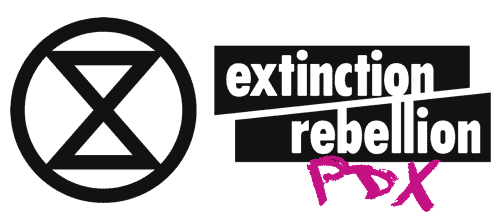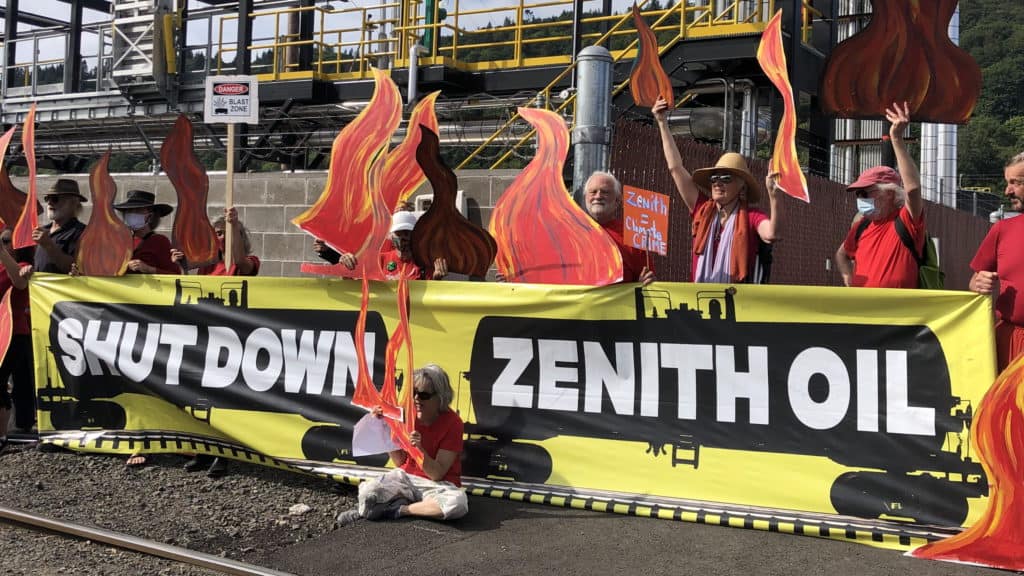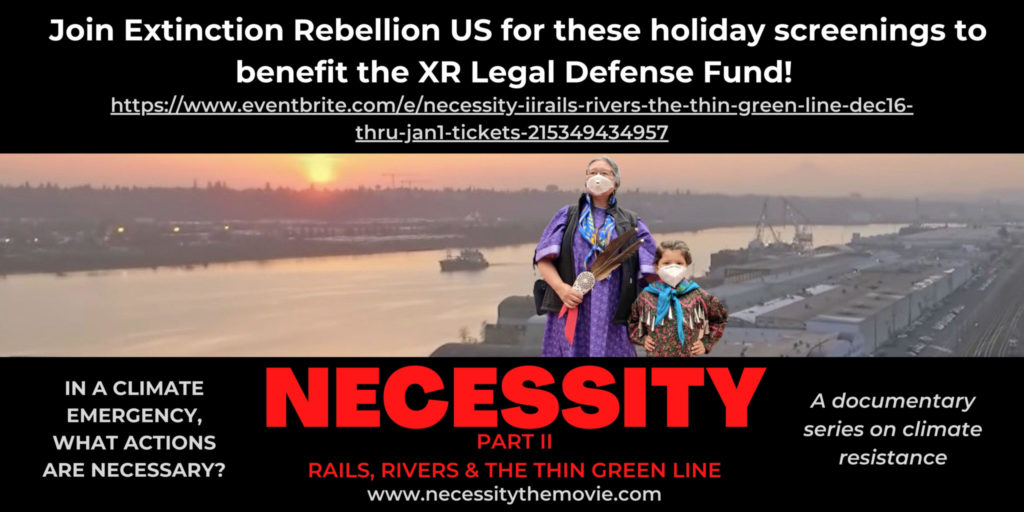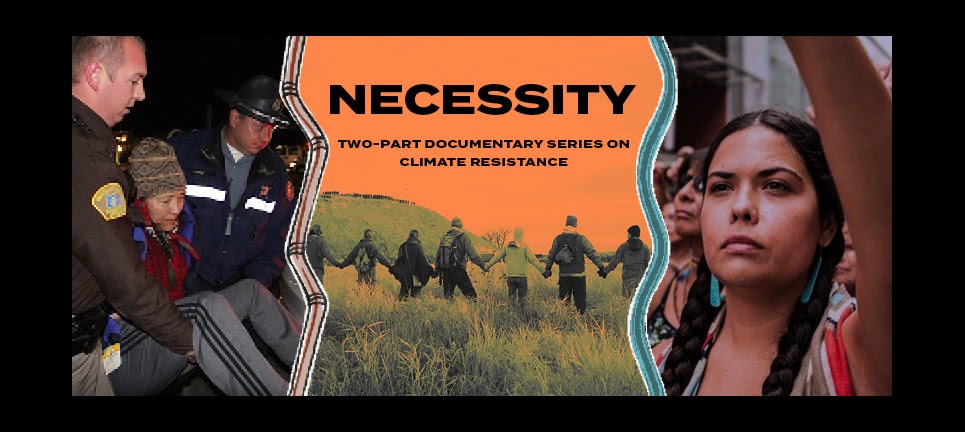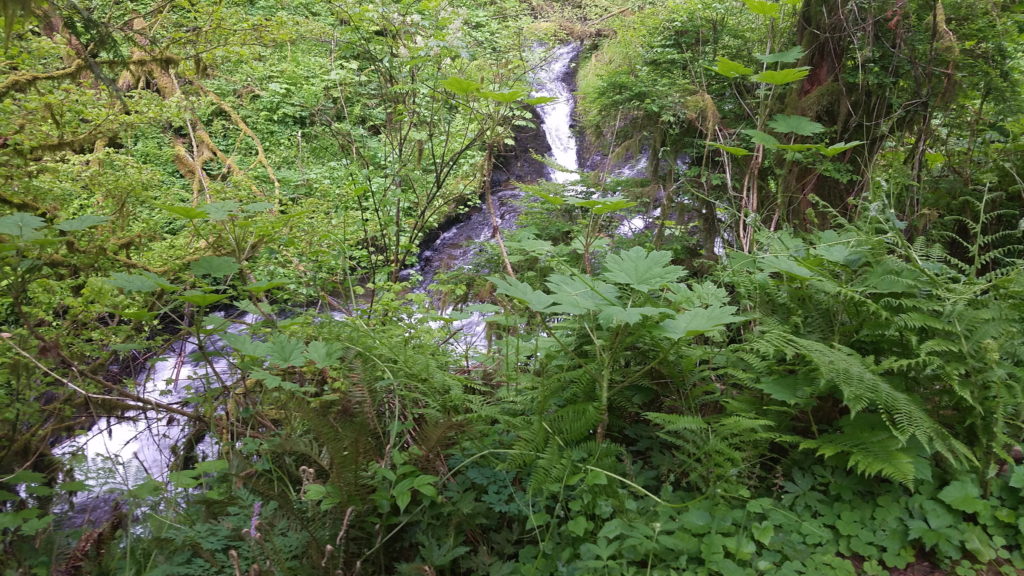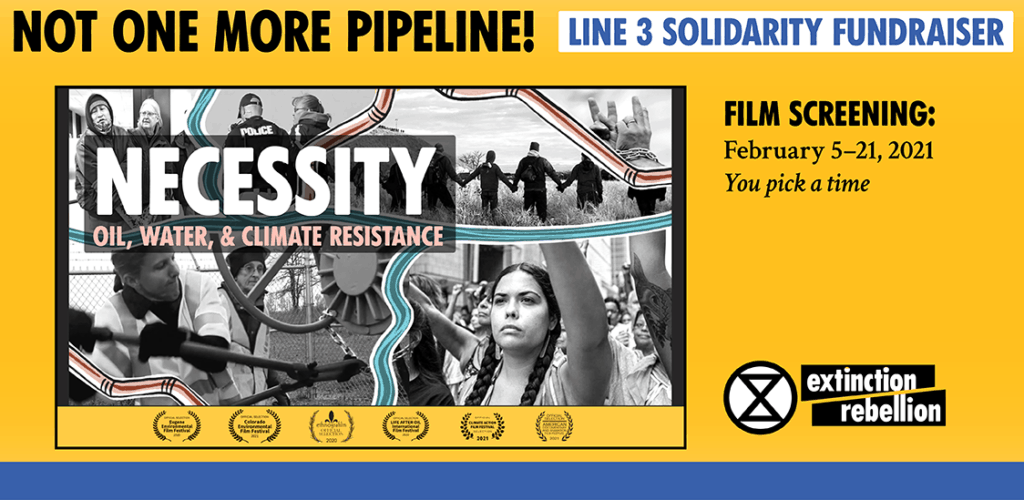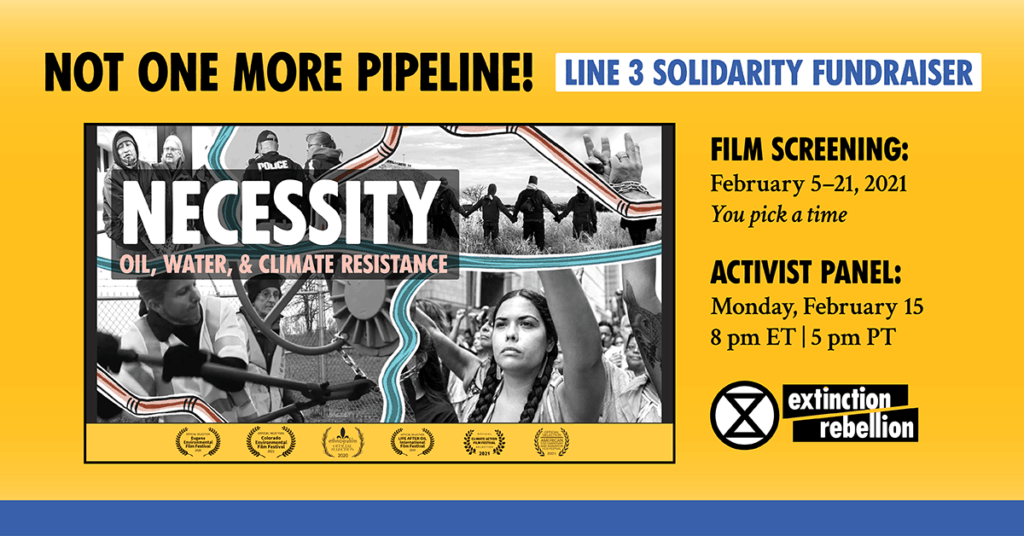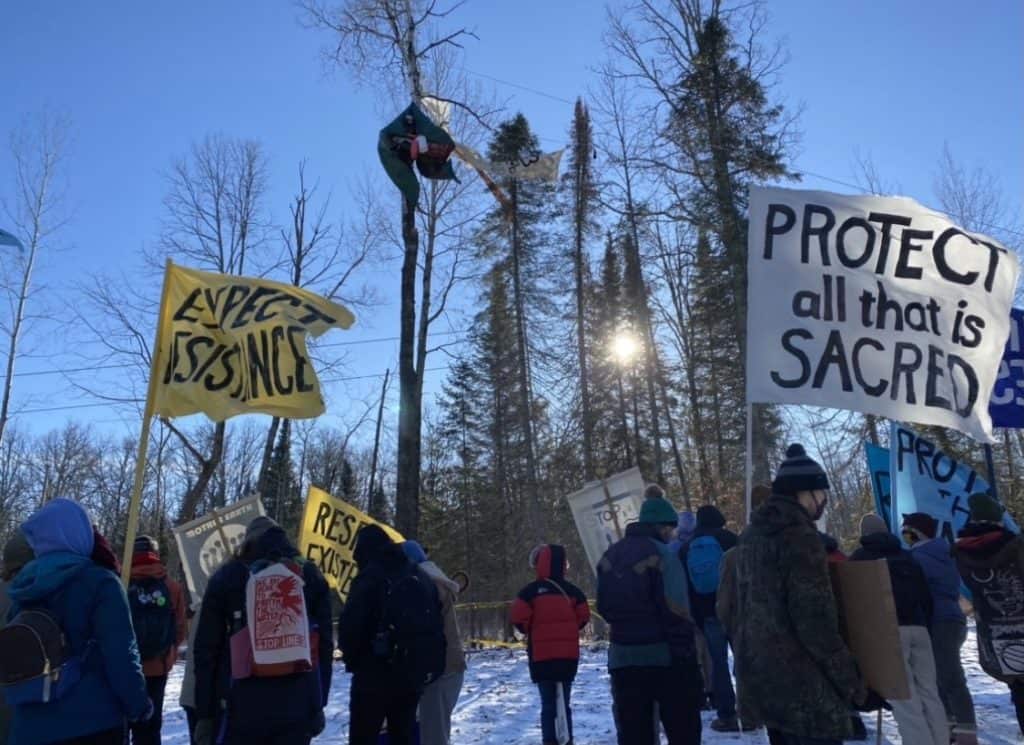Extinction Rebellion US (XRUS), in conjunction with other climate justice partners, is organizing a two week movie screening fundraiser for Indigenous water protectors and an educational panel on Indigenous action at the Minnesota Line 3 resistance sites.
What: The documentary, Necessity: Oil, Water, and Climate Resistance by filmmakers Jan Haaken and Sam Praus, highlights the work of Tara Houska and other Water Protectors who have been fighting Line 3. Please help spread the information about this fundraiser through all of your social media connections and register on Eventbrite.
When: The online movie fundraiser will take place February 5th – February 21st. Registrants can donate on a sliding scale and then watch within that time frame. Proceeds will go to Indigenous water protectors in the Giniw Collective and Miigizi Camp.
In addition to the film screening, there will be a separate zoom educational panel about the Indigenous action to Line 3 in Minnesota. We want to present a first-hand overview of the current Line 3 situation as well as gauge interest in car caravan pods of activists going to join them in early spring. The panel will outline a series of trainings and resources leading up to possible actions. The webinar will take place Monday, February 15th at 5 pm PST. The Zoom link to this event will be sent out to our Eventbrite attendees five days prior to the panel. Click here for more information about our panelists.
Indigenous leaders who are fighting the Line 3 pipeline in Minnesota have put out a call asking folks to come in support of their work on the frontlines to stop Enbridge’s construction of this tar sands project endangering the waterways, defiling the land, and contributing to the climate crisis. The defeat of Line 3 could be a death knell for tar sand pipelines in general as there have already been some flights of funders.
This pipeline will transport for export 1 million barrels of tar sands a day—the equivalent of 50 new coal fired plants. In addition to destruction of Canadian boreal forests, it endangers Anishinaabe and other tribal wetlands and rice fields, the headwaters of the Mississippi, and with 22 river crossings, is at great risk for spills and leakages for which the company has a sordid and non-transparent history.
There is no local market need for this pipeline, and it comes at a time when we need to be transitioning to renewable, sustainable clean energy and decreasing, not increasing, carbon emissions. It is critical to buy time for court challenges to be heard and put pressure on the new administration to weigh in against this horrific project.
Since December, over 44 water protectors have been arrested, and the company is rapidly trying to complete the project. In support of the water protectors’ call for support, COVID-protective caravans are being organized to show up to the frontlines of this historic climate battle.
